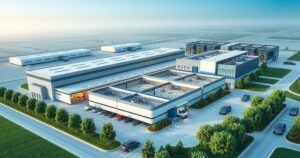Country Overview: Guinea’s Path to Democracy and Development

Guinea, a West African nation with a population of approximately 13.5 million, is undergoing a critical transition following a military coup in 2021, with aims to return to democratic governance. The country possesses abundant natural resources and a significant agriculture sector, crucial for economic development. USAID is actively supporting this transition by promoting democratic practices, health system improvements, and agricultural productivity while fostering inclusivity and gender equality.
Guinea, located in West Africa, is bordered by Guinea Bissau, Senegal, and Mali to the north, and by Sierra Leone, Liberia, and Côte d’Ivoire to the south. As of 2022, the nation’s population is approximately 13.5 million. Following its initial multiparty elections in 2010, which marked a departure from decades of autocratic governance, Guinea is presently undergoing a crucial transition phase after the military coup in September 2021. This transition is pivotal for establishing a democratic framework and achieving long-awaited stability in the nation. The country boasts significant natural resources, energy potential, and cultivable land. The agriculture sector stands as Guinea’s predominant employer, playing a critical role in alleviating poverty and fostering rural development by supporting 57 percent of rural households and employing 52 percent of the labor force. Beyond agriculture, Guinea’s wealth in natural resources—especially in mining and hydropower—has the potential to substantially enhance national revenue. Notably, it contains the largest bauxite reserves worldwide and ranks among the top producers of this mineral, while iron ore, gold, and diamond mining contribute significantly to the economy. In its efforts to facilitate a return to a sustainable democratic order, the United States Agency for International Development (USAID) collaborates with the transitional government to cultivate an inclusive democratic culture, promote adherence to the rule of law, and enhance the institutional capacities necessary for transparent, peaceful, and legitimate electoral processes. Moreover, USAID is dedicated to fortifying Guinea’s health systems at the community level to improve service delivery, as well as fostering economic growth by boosting agricultural productivity. These programs also emphasize gender equality in health services, agriculture, employment opportunities—particularly for the youth—and enhance participation in decision-making processes.
The government of Guinea is currently navigating a significant transitional era following decades of autocratic leadership and a recent military coup. The backdrop of Guinea’s political landscape involves its struggle for democracy and stability. The country has a rich endowment of natural resources which are fundamental to its economic growth and development. A significant portion of the population relies on agriculture for their livelihood, highlighting the critical nature of this sector in addressing poverty and fostering rural development. USAID’s involvement reflects a commitment to supporting Guinea’s journey towards democratic governance and sustainable economic development while promoting inclusivity and social equity.
In conclusion, Guinea is at a transformative crossroads that will shape its democratic future and social stability. The nation’s abundant natural resources, particularly in agriculture and mining, present substantial opportunities for economic growth. USAID’s initiatives aim to bolster democracy, enhance health systems, and promote economic development, with a strong emphasis on inclusivity and gender equality. The success of these efforts is essential for Guinea’s return to a democratic governance framework and the realization of its vast economic potential.
Original Source: www.usaid.gov






